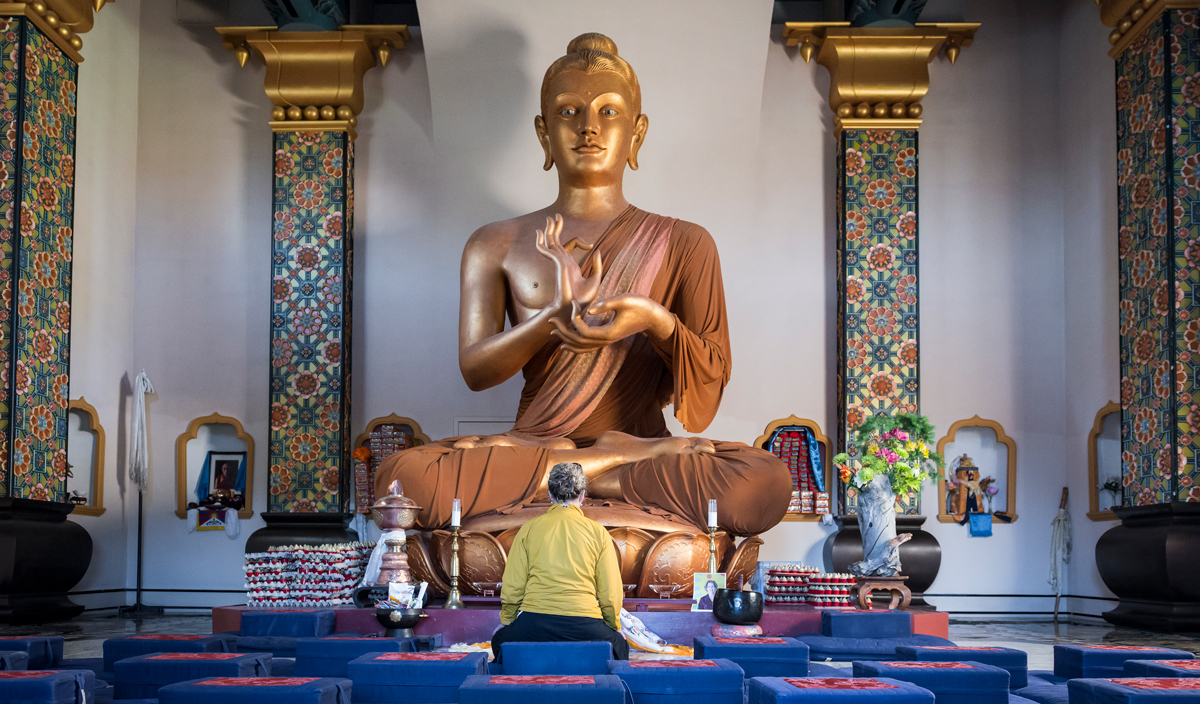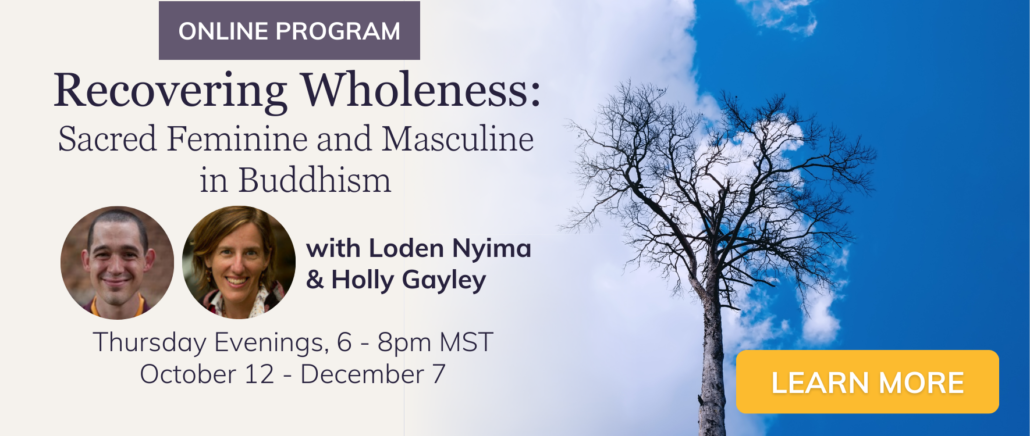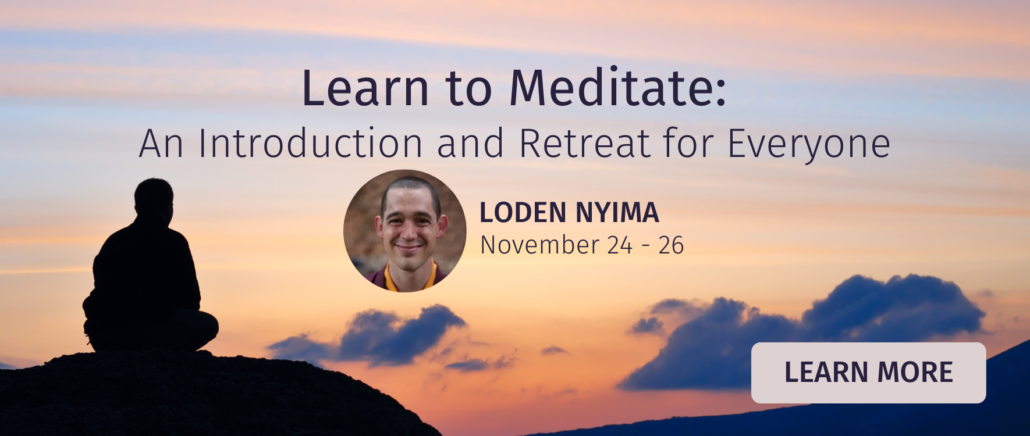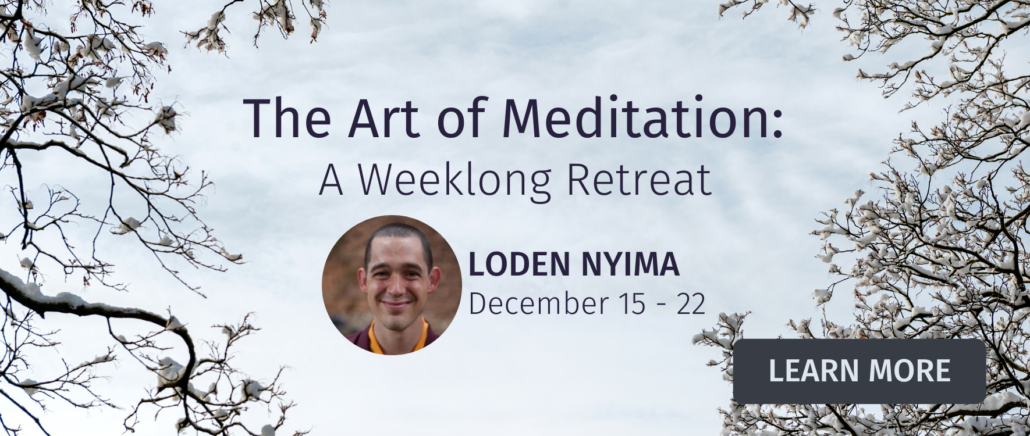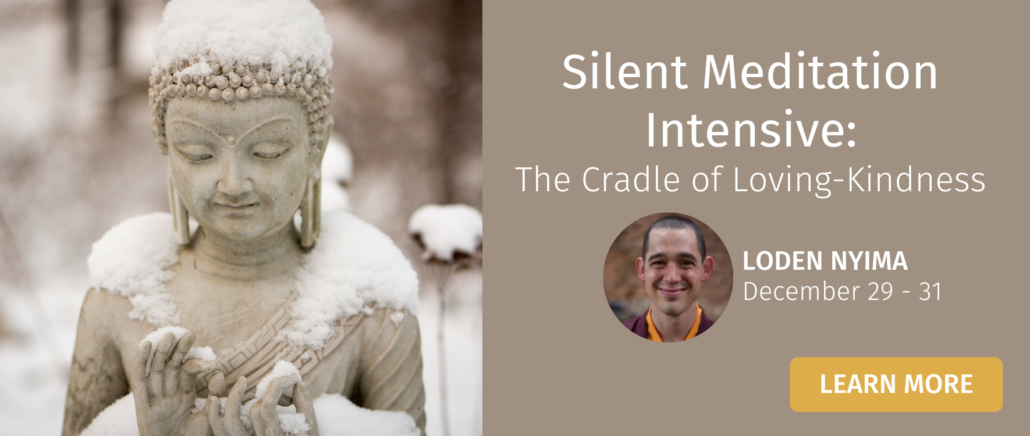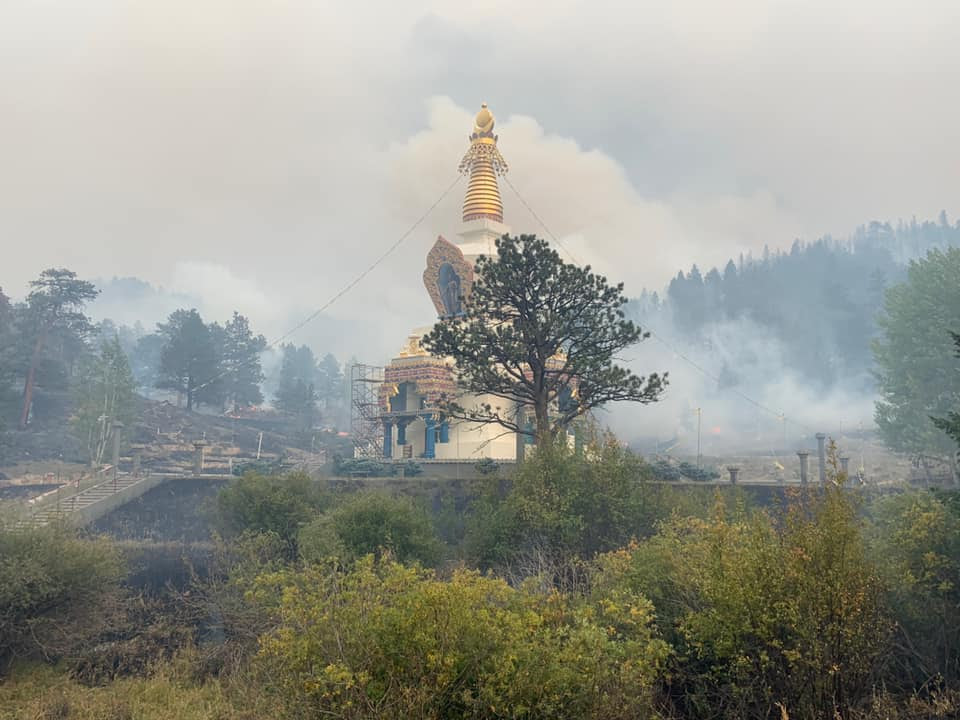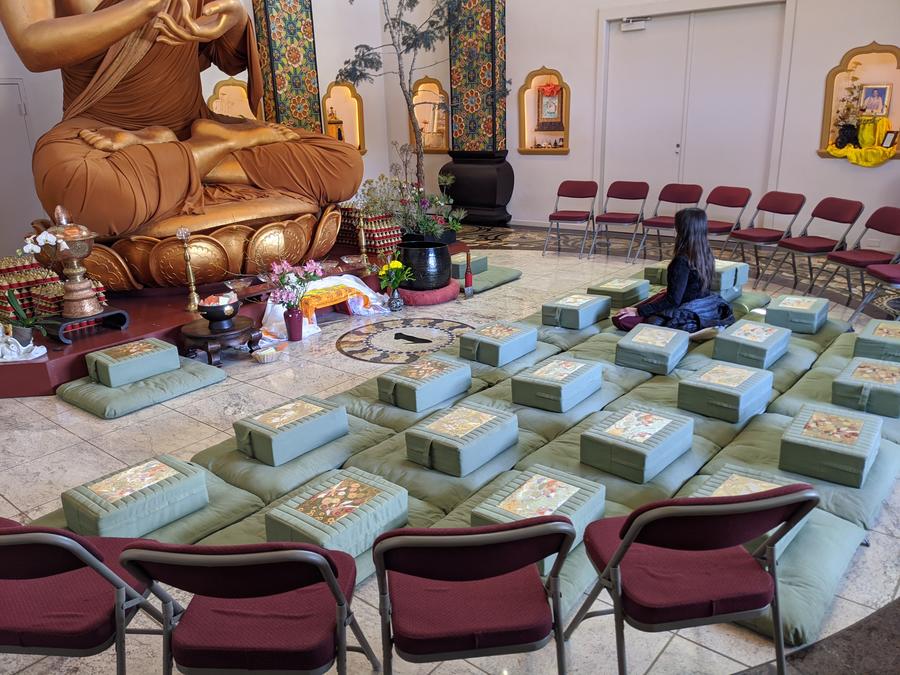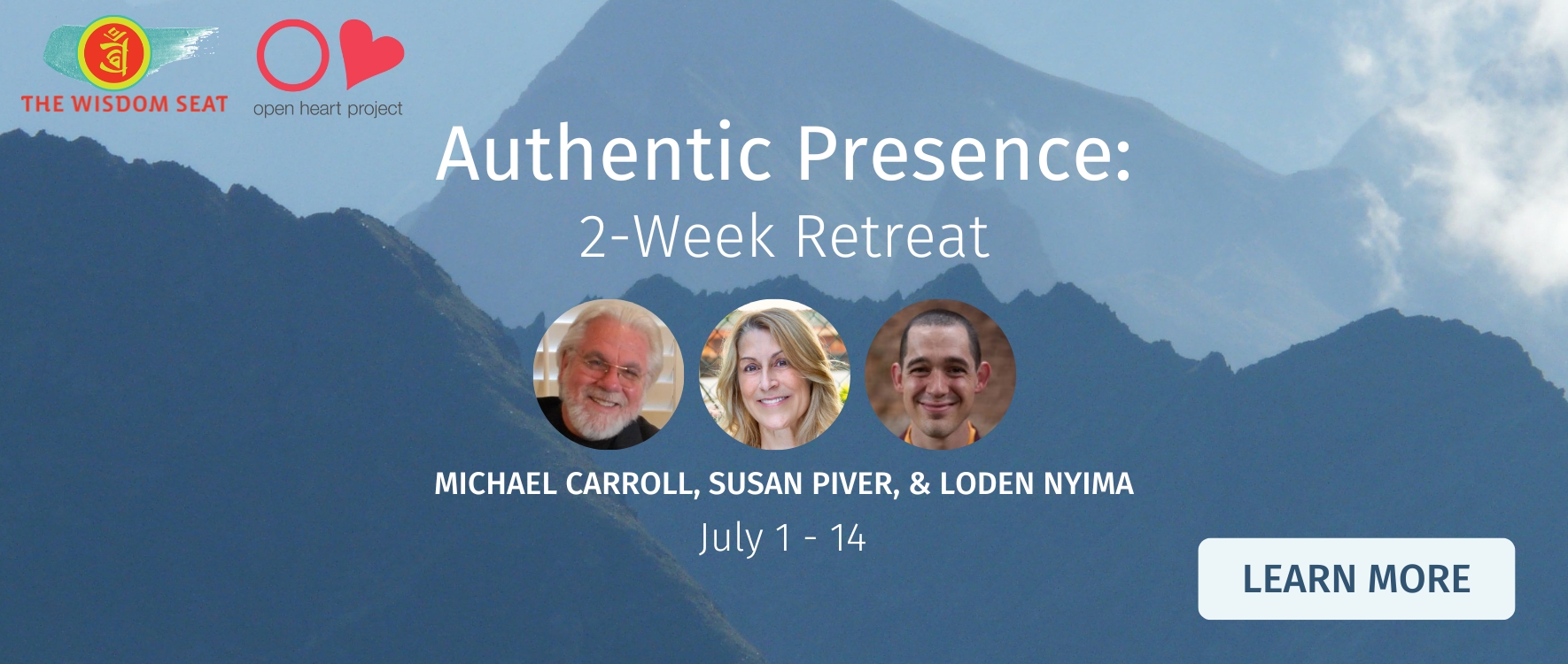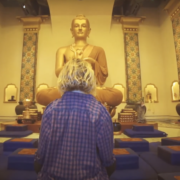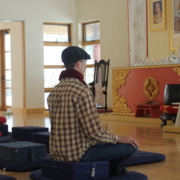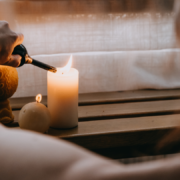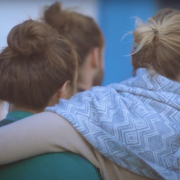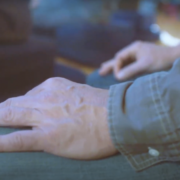Mindfulness and Permission to Feel
By Loden Nyima
As human beings we’re always feeling. It’s what it means to be alive. It connects us with ourselves, each other, and our environment. Feelings, perceptions, intuitions, all contain wisdom.
Yet these days, we often have to reclaim our ability to truly, actually feel. To allow ourselves to feel. To let our systems catch up from bombardment, overwhelm, or oppressive conditionings.
In meditation, we call allowing ourselves to fully connect to our present experience “mindfulness”
Mindfulness is a technical term in meditation that means to become familiar with something, to remember it, and to eventually remain undistracted from it. Our bodies, feelings, minds, and the whole world around us are all included within and are foundations for our mindfulness. They’re all regarded as quite sacred.
Everything is welcomed, allowed, and connected with exactly as it is. We’re enough, and we can meet life as it is and go from there.
Yet this is something we may have to reclaim through meditation practice, as this natural capacity has often been crushed, overwhelmed, or manipulated through the pace of life and social conditionings. Or, sometimes, our meditation is the first time we’ve ever realized we can feel and connect, especially if we haven’t had much of that in our lives. That’s OK too, and meditation can be healing in this regard as well.
Technological progress is certainly a good thing, but the frenetic speed of life and business we’ve harnessed it to create is simply faster than what any normal person can relate with spiritually. We’re bombarded with exponentially more information and emotional content than we could possibly meaningfully connect with and process. This not only creates a backlog deep within our minds and bodies, but it also leaves our system drained and overtaxed, and the result can be feeling numb, unable to connect or concentrate, slightly anxious, and mildly exhausted.
This is one area where practicing mindfulness in meditation can help, because we’re giving our system a chance to rejuvenate, and we’re re-empowering that capacity to feel and connect with life that has often been lost in the storm.
Revitalizing our attention span
When our attention is pulled in a million different directions all the time, again, our system can’t really keep up and it fragments our mindfulness and makes it harder to connect and pay attention when we want to, like even with ourselves emotionally, or with our loved ones, or even to take in a lengthy piece of art with appreciation, or to show up with our best qualities in our work. By re-cultivating mindfulness in meditation, connecting with our breathing, and allowing our minds to return to a more natural state of ease and health, we can repair this.
Many of us—and the conditionings can be drastically different depending who we are—are also affected by one or another social conditioning that says it’s OK to feel some things, but not others, or OK to express some truths, but not others, or that we have to fake pleasant emotions to get by in a situation, hold back certain painful things, control or manipulate to certain outcomes, etc., etc., etc. While societal evolution may be needed to heal oppressive dynamics at play, meditation also has a role to play here.
Complete emotional honesty
In meditation, part of mindfulness means complete emotional honesty with ourselves. Like actually feeling what’s there—not what we want it to be, or what any given inner or outer conditioning says it should be, or only the pleasant and not the painful parts—but what’s truly there. All of our felt experience has something to teach us, something to hear, and as it untangles from habitual patterns, the wisdom within it can be revealed.
Meditation allows our mindfulness to be set free. It allows this beautiful, natural capacity we have as humans to unfold, to be liberated from fixed narratives, and to embrace every moment of life. It allows us to connect with ourselves and each other more fully, from a wiser, kinder, place, and to understand how to live more true to form.
Even for ourselves, it shows us that it’s always possible to connect, and that we’re always there. We can give that total acceptance and presence to ourselves, whether or not we have that in our relationships. It can even be an entry into a more unconditional kind of love which we can offer ourselves and others, and which flows through all of life.
Retreat is a highly fortunate situation designed to support this, and ultimately, as we practice we become increasingly grounded, clear, and strong, and have all the more capacity to relate with whatever may come.
People have been traveling into the mountains to meditate together for thousands of years, supporting each other, and ourselves, to rediscover this natural capacity for a sacred way of being.
Join Loden for these upcoming programs!
About Loden Nyima
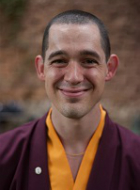
Featured image by Karen O’Hern

